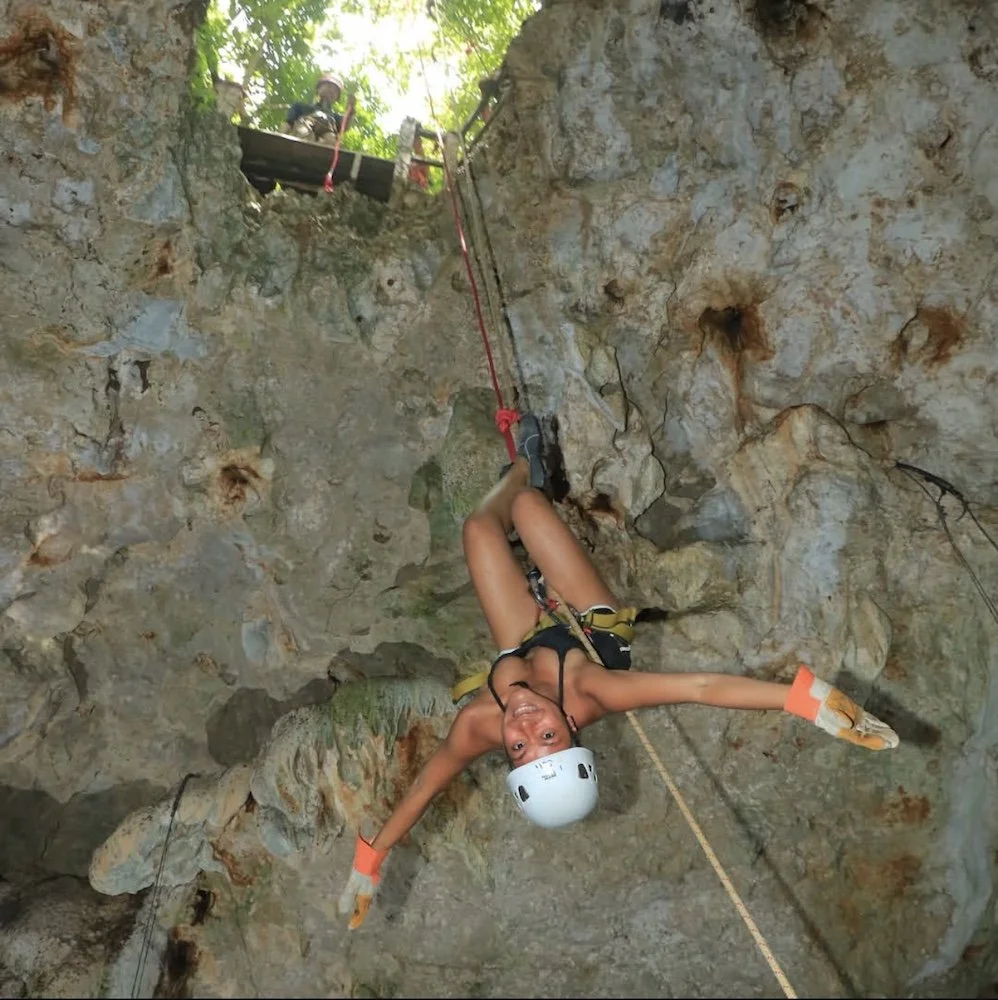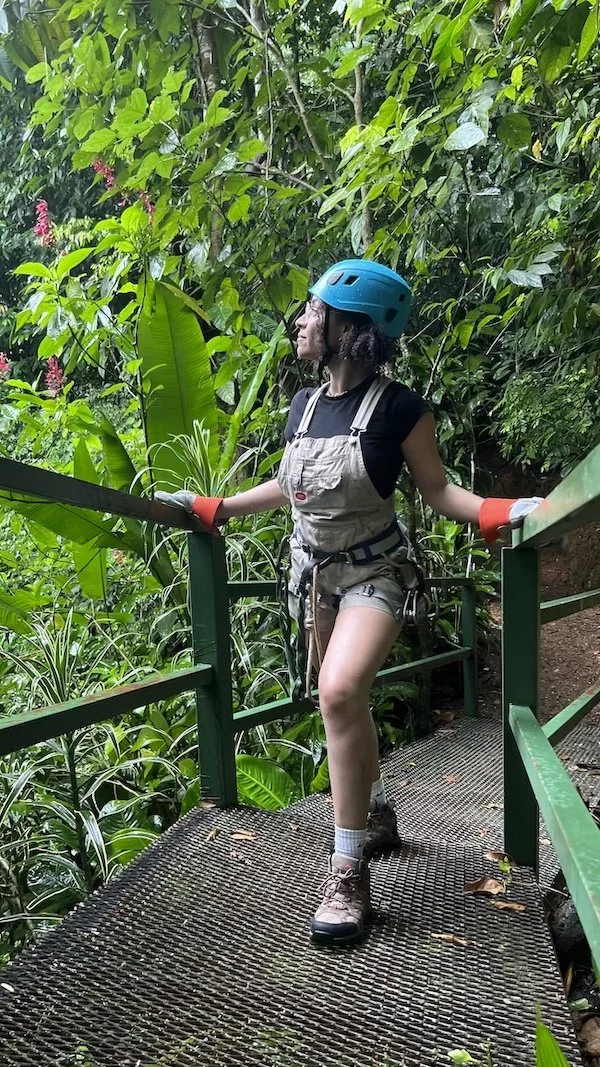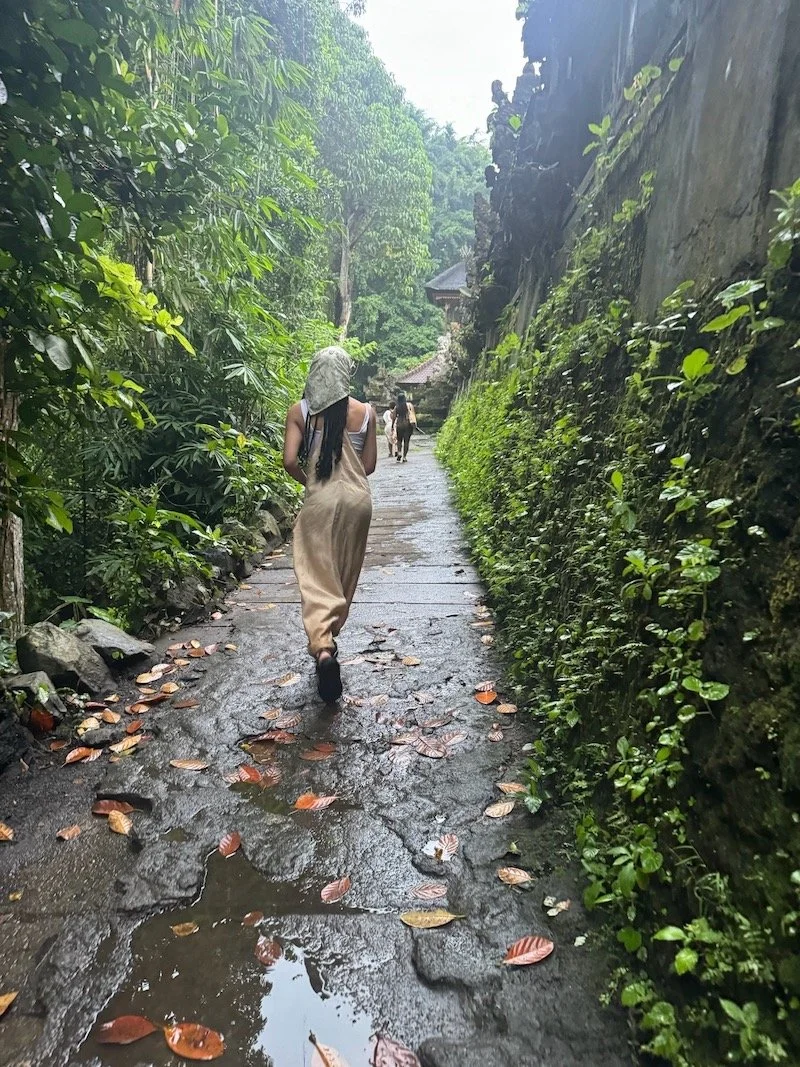What Kind of Adventure Seeker are You?: The Importance of an Adventure-based Mindset
Adventure can literally mean anything. Most sites and commercials will sell you the thrill of camping in the woods or jumping off of something really high, but that's not actually necessary to achieve the goal of experiencing an adventure. That may not even be your vibe either, and that doesn’t mean you’re not adventurous.
Research suggests that understanding your preferred type of adventure is crucial towards improving your overall health because it allows you to maximize the positive health impacts of adventurous experiences, including personal growth, stress reduction, and increased self-confidence. We need adventure for personal growth and self fulfillment, yet, it often takes a backseat to the mundane cycles of everyday work in modern society.
In the pursuit of learning myself for the benefit of my souleyness, I've wondered a few things. How do I understand the type of adventure I'm really looking for? What does this tell me about myself? And how can I make it happen while balancing full-time work in an urban setting?
These are all questions I'll explore below as I discuss the science behind the term adventure to help us understand why it's important to learn what kind of adventure seeker you are, and how you can nurture your adventurousness no matter the circumstance. Read till the end for a free self-assessment based on this research to help you find your adventure type, as well as learn some ways you can bring this self-discovery to life, even with a busy schedule!
The Science Behind Adventure and Well-being
The earliest known use of the word adventure was in the Middle English period (1150 to 1500). Borrowed from French aventure and Latin aventūrus, both meaning “to arrive.” Since then, the word has been used to describe an unusual, exciting experience, or the excitement produced by such activities. As humans, our natural adaptation to new environments combined with our natural curiosity, drives us towards the pursuit of adventure. It’s a fundamental part of the human experience, literally ingrained in our psychology and biology.
Mexico 2018
Most research on the health-benefits of practicing adventure focuses on the benefits of outdoor adventure. Since physical adventure usually involves some sort of exercise, it can naturally trigger the release of dopamine and serotonin, also known as the happy hormones :) Since a lot of the data reporting the health impacts of adventure are self-reported, A 2017 study from the Journal of Experiential Education on the cognitive and psychological impacts of adventure activities looked at self-reported evidence in comparison to EEG results from 10 participants. An EEG is short for electroencephalogram. A test that measures the electrical activity of the brain. Think swim cap with a bunch of wires.
The study compared what was perceived in these self-reports to what was happening neurologically (in the brain) in participants while they participated in a rappelling adventure with the brain cap on. The results mainly proved that we can’t rely on self-reports. Could’ve called that one. But, to adventure's advantage, the analysis of brainwave patterns showed changes associated with increased focused attention, reduced anxiety, and increased engagement in the task at hand. Therefore providing physical evidence to support the self-reported positive effects in the study. Adventure is healing!
Adventure based mindset: The key to understanding self
Part of understanding what kind of adventure you seek has a lot to do with how you define and think of adventure. Thinking that adventure has to be an extravagant, “aesthetic” journey can limit your experiences with the smaller adventures in life which are just as important. An adventure-based mindset is a growth-oriented way of thinking that encourages people to embrace new experiences and challenges outside of their comfort zones. Having an adventure-based mindset allows you to view the world differently, to grow outside your comfort zone which then allows you to expand your perception of the world and yourself. What you seek exactly depends on your desire. If you don’t know what you desire, let Souleyness be your starting point.
Costa Rica 2023
To understand what kind of adventure you seek, a great place to start is understanding the different types of adventure. This isn’t to say that you have to choose a specific “adventure type,” but knowing your options may help you understand what you may be searching for as you evolve. A few examples include but are not limited to:
Physical Adventure: Hiking, climbing, and other high-intensity activities.
Cultural Adventure: Exploring museums, attending live performances, and trying new cuisines.
Creative Adventure: Engaging in artistic projects or learning a new craft. Simply tapping into your creativity in any way is an adventure.
Social Adventure: Meeting new people, joining clubs, or participating in community events.
Successfully navigating an adventure helps you gain a stronger sense of your capabilities and weakness, which strengthens self-awareness and confidence. Exposure to new environments and experiences through adventure broadens perspective and helps develop a greater appreciation for the world around us. For more challenging adventures, learning to manage fear and stress in a challenging outdoor situation can translate to healthier emotional regulation on a daily basis. Exploring and experiencing yourself using adventure and an adventure-based mindset creates a road of infinite possibilities to increase your overall well-being– your Souleyness.
Navigating Adventure in a 9-5 NYC Life
Adventure can literally mean anything. What makes it an adventure is your intention to view your experience as one. So long as you prioritize it, you can squeeze an adventure into any day. Trying to embark on larger, more time consuming adventures can be hard with a tight schedule. One way to experience adventure with a busy schedule is by embarking on micro-adventures. Some examples include but are not limited to:
Meditation: Yes, meditation can absolutely be an adventure. The mind-body practice provides a way to explore your inner world. You could also add background music to envision yourself in a specific setting.
Lunch break walks: Excessive sitting and lack of natural light in an office setting decreases mood, adding to that force that seems to make time go slower at work. Simply standing outside for 5 minutes can significantly improve your mood, energy, and focus.
Evening hikes: If you work in the city, then chances are you're not too far from a local park with an easy walking trail. Plan ahead to go for a hike after work. Slow down and notice the environment surrounding you. What do your senses tell you?
Crafting: It doesn’t matter if you’re an adult, you still need arts and crafts time. Check out the blog for simple crafts to calm the mind.
Bali 2024
Having barriers out of your control can hit pause on your ideal adventure. But who says you can’t enjoy the smaller ones in the meantime? The best place to start when trying to prioritize anything is to Create a plan. Even if it's as simple as a 5 minute walk on your lunch break or coloring for a few minutes before bed, picking a date and time in advance ensures your goal remains a priority. For more time consuming goals like going on a hike, try planning at least a month ahead.
I understand trying to incorporate adventure with a busy schedule can be a challenge for many for many reasons. Simply doing your best to fit the goal into your schedule will help you stay accountable and eventually build consistency over-time. You can also join local adventure and wellness groups, adding a layer of social adventure to your plans. If you live in NYC, check out Hike & Heal and AdriFit!
Complete the Souleyness Adventure Seeker Survey here to help you understand what kind of adventure you like based on your preferences. Souleyness is all about the exploration of self, and adventurousness is crucial towards doing so because it allows you to explore a new way to learn what you love and more importantly, how to create opportunities for you to experience it. Having an adventure-based mindset caters to a balanced and fulfilling life. One that prioritizes our natural need to engage in adventurousness.
Disclaimer: Information and content on this website is provided for information and educational purposes only, and is not intended as a substitute for the advice provided by your physician or other healthcare professional. No information offered here should be interpreted as a diagnosis of any disease, nor an attempt to treat or prevent or cure any disease or condition. If you have or suspect that you have a medical problem, promptly contact your healthcare provider. Do not disregard professional medical advice or delay seeking medical care because of something you have read on this website. Always speak with your healthcare professional before taking any medication, nutritional or herbal supplement. Information and statements regarding dietary supplements have not been evaluated by the Food and Drug Administration and are not intended to diagnose, treat, cure or prevent any disease.
Sources:
https://dictionary.cambridge.org/dictionary/english/adventure
Bailey, A. W., Johann, J., & Kang, H.-K. (2017). Cognitive and Physiological Impacts of Adventure Activities: Beyond Self-Report Data. Journal of Experiential Education, 40(2), 153-169. https://doi.org/10.1177/1053825917701250



